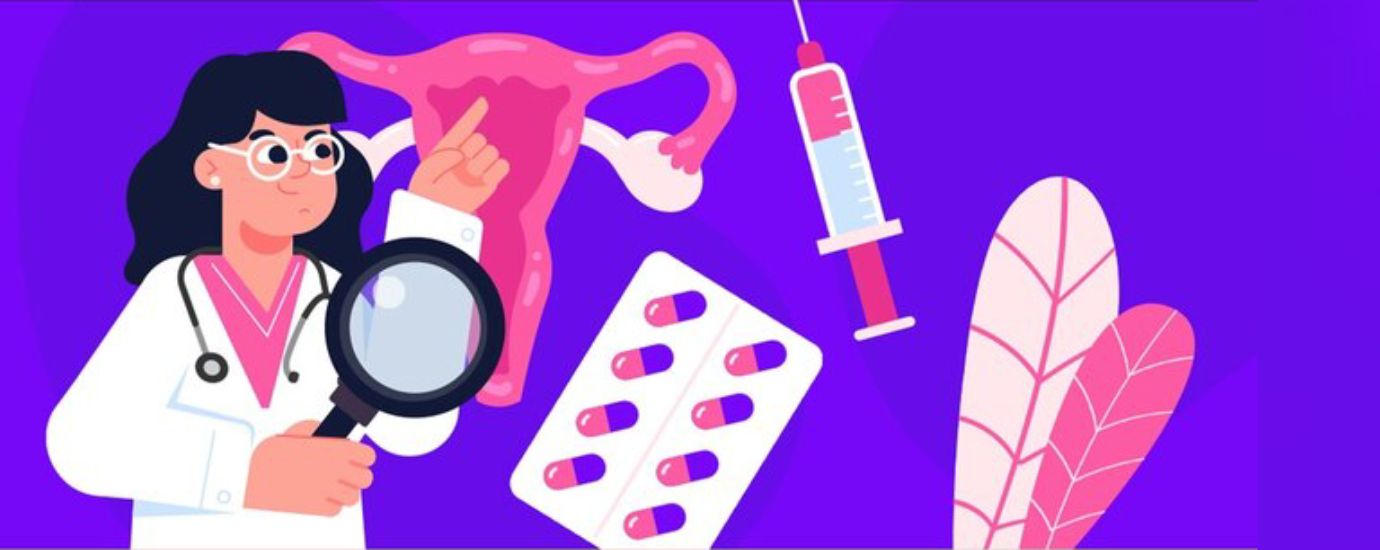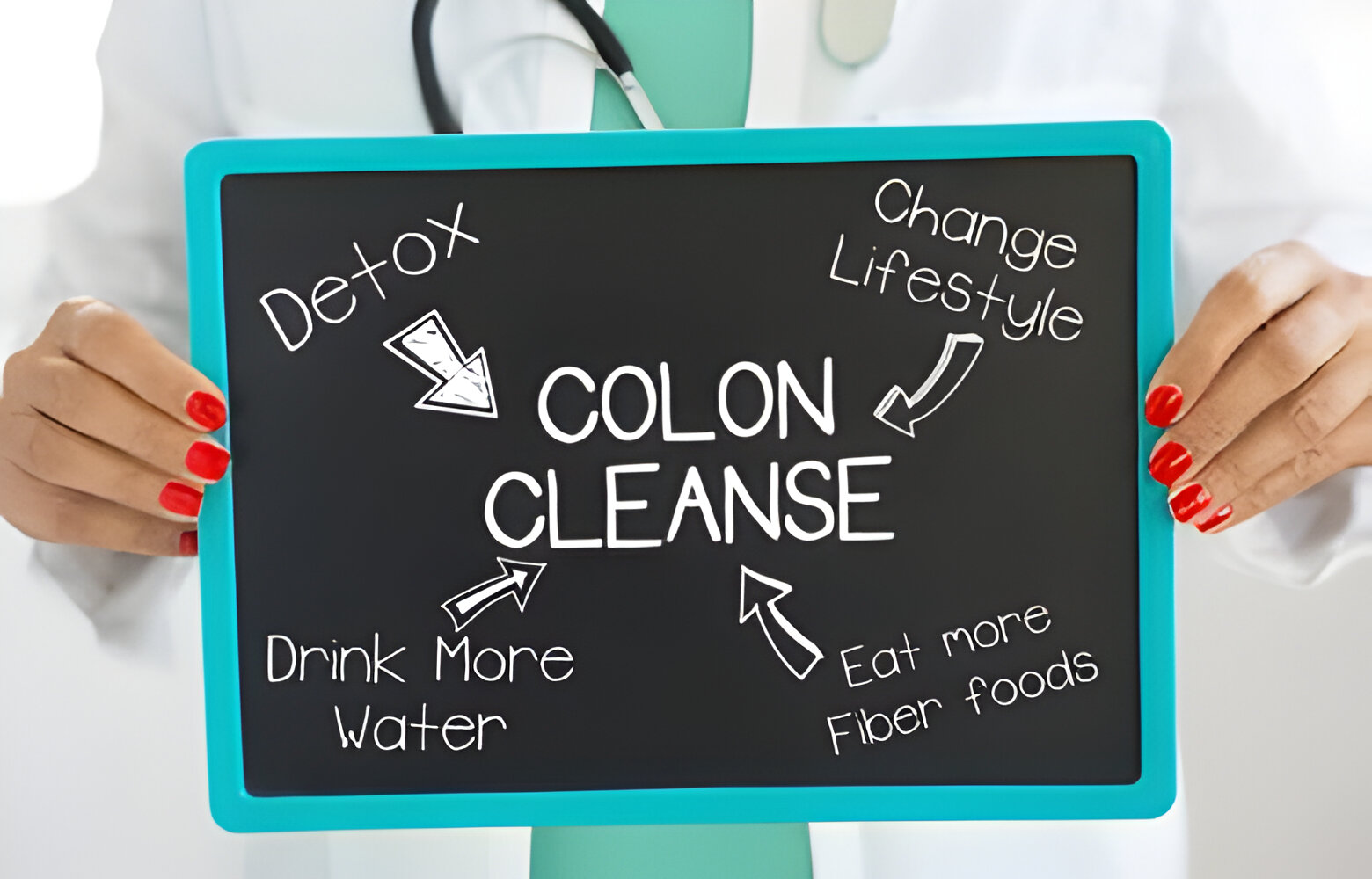Book on Whatsapp
9892101616
Suffering from Vitamin B12 and D Deficiency? Here's your recovery guide
Diseases and Conditions
Wed Feb 14 2024
Suffering from vitamin B12 and vitamin D deficiencies can have significant impacts on your health and well-being. Fortunately, with the right approach and guidance, you can recover and improve your nutritional status. Here's a recovery guide to help you:
1. Consult a healthcare professional: Seek guidance from a healthcare provider, such as a doctor or a registered dietitian. They can evaluate your symptoms, perform necessary tests, and develop a personalized treatment plan based on your deficiencies.
2. Understand vitamin B12 deficiency: Vitamin B12 is essential for nerve function, DNA synthesis, and red blood cell production. Deficiency can lead to fatigue, weakness, numbness or tingling in the extremities, mood changes, and memory problems. It is commonly seen in individuals with certain gastrointestinal disorders or those following a strict vegetarian or vegan diet.
3. Understand vitamin D deficiency: Vitamin D plays a crucial role in bone health, immune function, and mood regulation. Deficiency can cause bone pain, muscle weakness, frequent infections, fatigue, and mood disorders. Lack of sunlight exposure, certain medical conditions, and limited dietary intake are common causes of vitamin D deficiency.
4. Get diagnosed: Through blood tests, your healthcare provider can determine your vitamin B12 and D levels. This information will help them assess the severity of your deficiency and guide appropriate treatment.
5. Vitamin B12 supplementation options: If you have a confirmed vitamin B12 deficiency, your healthcare provider may recommend oral or injectable vitamin B12 supplements. They will determine the appropriate dosage and duration of supplementation based on your specific needs. In some cases, dietary changes alone may be sufficient, while others may require ongoing supplementation.
6. Vitamin D supplementation options: For vitamin D deficiency, your healthcare provider may recommend vitamin D supplements. The dosage will depend on your blood levels, and they may advise regular monitoring to achieve optimal levels. Additionally, spending time outdoors in sunlight can help stimulate natural vitamin D synthesis in the body.
7. Eat a balanced diet: In addition to supplementation, consume a diet rich in foods that naturally contain vitamin B12 and D. Including animal products like fish, eggs, dairy, and fortified plant-based alternatives can help increase your vitamin B12 intake. Vitamin D sources include fatty fish, egg yolks, fortified dairy products, and mushrooms exposed to sunlight.
8. Consider lifestyle changes: Spending time outdoors in sunlight can help your body synthesize vitamin D naturally. Aim for 10-30 minutes of unprotected sun exposure on your face, arms, and legs a few times a week. However, be cautious about overexposure and the risk of sunburn.
9. Follow up with your healthcare provider: Regularly monitor your progress through follow-up appointments and blood tests. This will allow your healthcare provider to adjust your treatment plan as needed and ensure your deficiencies are improving.
Remember, recovery from vitamin B12 and D deficiencies takes time. It is important to follow the guidance of your healthcare provider and maintain a consistent approach to your treatment plan. By making the necessary dietary changes and, if required, taking supplements, you can improve your vitamin levels and regain your overall well-being.
Related Blogs

Diseases and Conditions
Common Summer Diseases and How to Prevent Them
Summer is a season of sunshine, vacations, and outdoor activities. However, it also brings a higher risk of certain diseases. Knowing about these common summer illnesses and understanding how to prevent them can help you enjoy the season without falling sick.
1. Heatstroke
One of the most serious summer-related conditions is heatstroke. When your body temperature rises rapidly and the body fails to cool itself, it can lead to heatstroke. Symptoms include dizziness, nausea, confusion, and high fever.
Prevention Tip:
Stay hydrated, avoid direct sunlight during peak hours, wear light clothing, and take frequent breaks if you are outdoors.
2. Dehydration
Hot temperatures increase the risk of dehydration, especially if you are sweating a lot. Dehydration can cause fatigue, dry mouth, dizziness, and low blood pressure.
Prevention Tip:
Drink water throughout the day, even if you don’t feel thirsty. Include fruits with high water content like watermelon, cucumber, and oranges in your diet.
3. Food Poisoning
Food tends to spoil faster during summer due to heat, leading to foodborne illnesses. Eating contaminated or improperly stored food can cause vomiting, diarrhea, and stomach cramps.
Prevention Tip:
Always eat freshly cooked food, store perishables properly, and maintain good hygiene while preparing meals.
4. Diarrhea
Due to contaminated food and water, diarrhea becomes a common complaint during the summer. It can lead to severe dehydration if not treated in time.
Prevention Tip:
Ensure you consume clean drinking water. Avoid eating street food or anything that appears stale.
5. Sunburn
Prolonged exposure to the sun can cause sunburn, resulting in red, painful, and peeling skin. Severe sunburn can even lead to fever and chills.
Prevention Tip:
Apply a broad-spectrum sunscreen, wear protective clothing, and stay in the shade as much as possible.
6. Prickly Heat (Heat Rash)
Sweating can clog skin pores, causing tiny, itchy red bumps, commonly known as prickly heat. It mostly affects the back, neck, and chest.
Prevention Tip:
Wear loose-fitting, breathable clothes and keep your body cool. Use a mild powder to prevent excessive sweating.
7. Typhoid
Typhoid fever is caused by consuming contaminated water or food. Symptoms include prolonged fever, weakness, abdominal pain, and constipation.
Prevention Tip:
Drink only purified water and maintain good food hygiene practices. Vaccination against typhoid is also recommended in some cases.
8. Jaundice
Contaminated water and poor sanitation increase the risk of hepatitis A during summer, leading to jaundice. Symptoms include yellowing of the skin and eyes, fatigue, and abdominal pain.
Prevention Tip:
Practice proper hand hygiene, avoid roadside food, and drink clean, safe water. At manipaltrutest.com, we encourage you to take preventive health check-ups during the summer to ensure early detection and proper management of seasonal illnesses.
Summer diseases can spoil the joy of the season, but most of them are preventable with a few simple precautions. Staying hydrated, eating fresh food, maintaining personal hygiene, and protecting yourself from the sun can go a long way in keeping you healthy.
Remember, your health is your best companion for all the adventures you plan this summer! Visit manipaltrutest.com for more health tips and health check support.

Diseases and Conditions
Complete Guide to STD Panel Testing and Benefits
Your doctor might have prescribed STD panel testing. So, where should you get the testing done? Find a reliable clinic to undergo the test. You will require a valid doctor’s prescription to order the test. The lab technician will want to know the samples to be taken for the test. It helps the doctor to check to determine positivity for STD diseases. Men and women may contract infections like HIV/AIDS, Hepatitis, and Syphilis.
How to test?
- Your doctor might prescribe a variety of examinations to diagnose the problem. Usually, they specify the test based on the patient’s personal requirements and sexual history. Some common testing procedures are:
- Urine and Blood examination: These are common tests conducted to determine the presence of STDs. The lab technician might prick the finger or the arm to draw blood. On the other hand, you may have to pee into a cup for a urine sample. However, based on the STD type, the tests might not offer accurate results compared to other testing methods.
- Physical exam: The doctor might conduct a simple physical examination to identify bumps, blisters, or sore development in the body. Such irregularities might indicate sexually transmitted infections. Samples might be necessary from these parts to conduct the test and confirm the symptoms.
- HPV and Pap Smear exam: The doctor could prescribe a Pap smear exam to determine cervical or anal cancer symptoms. Although such tests might not indicate an STD, abnormal Pap smear results may require further HPV tests. Remember, Pap smear examinations do not immediately indicate cancer or STD. Some abnormal results could be resolved without treatment.
- Swabs: The doctor may apply swabs inside the mouth, in the urethral, or the vaginal areas. For pelvic examination, they use a cotton swab in the cervix or anal region. Swabs help diagnose infectious viruses or bacteria. The test helps identify the exact problems and avail the correct treatment.
Can you conduct STD tests at home?
Yes, you can buy home testing kits to conduct tests at home. It provides convenience, comfort, and privacy. However, they are prone to improper administration or possible contamination. Hence, the results derived could be false-negative or false-positive. Visit a reputed clinic to receive accurate results. You will have peace of mind and proper treatment.
Time taken to receive the results
You have to deposit the samples to the clinic and wait a couple of days or a week to receive a detailed report. You are to show the report to your doctor. They will examine it thoroughly and determine if it is positive or negative. Fortunately, some STDs are curable. Hence, don’t panic. Talk to the doctor about potential treatment options.
When should you receive an STD test?
Sexually active men and women should get semi-frequent STD testing. Immediate testing might be necessary for diverse reasons. It can be having multiple partners or a new partner, neither of you using condoms, or your partner having an affair. It could also be that one of you exhibits STD symptoms. Whatever the case, visit a clinic at the earliest and get tested.

Diseases and Conditions
Guide To Natural Colon Cleanse Diets & Homemade Drinks
Colon cleansing, also known as colon therapy or colon detoxification, is a practice that involves removing waste and toxins from the colon or large intestine. Proponents of colon cleansing believe that accumulated waste and toxins in the colon can lead to various health problems, such as constipation, bloating, gas, and fatigue. They claim that cleansing the colon can improve digestion, boost energy levels, and promote overall well-being.
There are several methods of colon cleansing, including:
1. Colon hydrotherapy (colonic irrigation): This procedure involves flushing the colon with water through a tube inserted into the rectum. The water helps to soften and remove waste and toxins from the colon.
2. Laxatives: Taking oral laxatives or using enemas can help stimulate bowel movements and eliminate waste from the colon.
3. Herbal supplements: Some people use herbal supplements or teas that claim to promote colon cleansing by enhancing bowel movements and detoxification.
4. Detox diets: These diets typically involve consuming only certain foods or liquids for a period of time to eliminate toxins from the body, including the colon.
Before considering any form of colon cleansing, it's important to consult with a healthcare provider to discuss the potential risks and benefits based on individual health needs and medical history. Additionally, practicing healthy habits like eating a balanced diet, staying hydrated, and maintaining regular physical activity can promote better colon health without the need for specialized cleansing procedures.
Here are 10 recommended food items for colon cleansing:
Home-made Foods:
1. Fiber-Rich Foods: Foods high in fiber, such as whole grains, fruits, and vegetables, promote healthy digestion and help regulate bowel movements.
2. Probiotic Yogurt*: Yogurt containing probiotics can help maintain a healthy balance of gut bacteria, aiding digestion and promoting overall colon health.
3. Leafy Greens: Vegetables like spinach, kale, and Swiss chard are rich in vitamins, minerals, and fiber, supporting colon health and regularity.
4. Berries: Berries are packed with antioxidants and fiber, which can help cleanse the colon and support a healthy digestive system.
5. Flaxseeds: Flaxseeds are rich in fiber and omega-3 fatty acids, which can help promote bowel regularity and support colon health.
6. Legumes: Beans, lentils, and chickpeas are excellent sources of fiber and protein, promoting digestive health and aiding colon cleansing.
7. Broccoli: Broccoli is high in fiber, vitamins, and antioxidants, making it a great food for colon cleansing and overall gut health.
8. Quinoa: Quinoa is a nutritious whole grain that is high in fiber and protein, supporting digestive health and colon cleansing.
9. Garlic: Garlic contains compounds that can support healthy digestion and promote the growth of beneficial gut bacteria, aiding in colon cleansing.
10. Water: Staying hydrated is key for colon cleansing, as water helps flush out toxins and waste products from the body, supporting a healthy colon.
These food items can contribute to colon cleansing by promoting healthy digestion, regular bowel movements, and a balanced gut microbiome. Including these foods in your diet can support overall colon health and improve your digestive system's functioning.
Home-made Beverages
Here are 10 homemade drinks that can help with body cleansing and their benefits. Check out the colon cleanse drinks at home.
1. Lemon Water: Lemon water is a powerful detox drink that helps to cleanse the liver and aid digestion. It is also a great source of Vitamin C and antioxidants.
2. Green Tea: Green tea is rich in antioxidants called catechins, which can help flush out toxins from the body and improve overall health.
3. Cucumber Mint Detox Water: This refreshing drink helps to flush out toxins, reduce bloating, and keep you hydrated.
4. Ginger Detox Tea: Ginger has anti-inflammatory properties and aids digestion, making it a great choice for cleansing the body.
5. Apple Cider Vinegar Drink: Apple cider vinegar can help balance pH levels in the body, improve digestion, and promote detoxification.
6. Turmeric Golden Milk: Turmeric is known for its anti-inflammatory properties and can help cleanse the liver and support overall detoxification.
7. Detox Smoothies: Combining fruits and vegetables like kale, spinach, berries, and avocado in a smoothie can provide a nutrient-rich and cleansing beverage.
8. Dandelion Tea: Dandelion tea acts as a diuretic, helping to flush out toxins from the body and support liver health.
9. Aloe Vera Juice: Aloe vera juice can help cleanse the digestive system, improve nutrient absorption, and support overall detoxification.
10. Peppermint Tea: Peppermint tea aids digestion, reduces bloating, and can help with liver and gallbladder function, making it a great choice for cleansing the body.
However, certain healthcare professionals caution against the practice, as it can have potential risks and side effects, such as dehydration, electrolyte imbalances, bowel perforations, and changes in gut bacteria. It is strongly recommended to seek expert healthcare advice before you start considering taking the plunge.
Remember to drink plenty of water throughout the day to support the detoxification process and stay hydrated. Additionally, it's essential to maintain a balanced diet and consult with a healthcare provider before making significant changes to your diet or incorporating new cleansing drinks into your routine.
Manipal TRUtest offers a wide range of diagnostic services with assured quality, accuracy, and trust backed by 70 years of Manipal legacy. You can easily schedule a blood test such as Diabetes profile test, HbA1c, CBC, Kidney Function Test, Lipid Profile, Liver Function Test, Vitamin Test. Thyroid Profile. through our WhatsApp Chatbot, Mobile App, or Website. We also provide the convenience of a Home Sample Collection, where a highly qualified phlebotomist will visit you in the comfort of your home.
